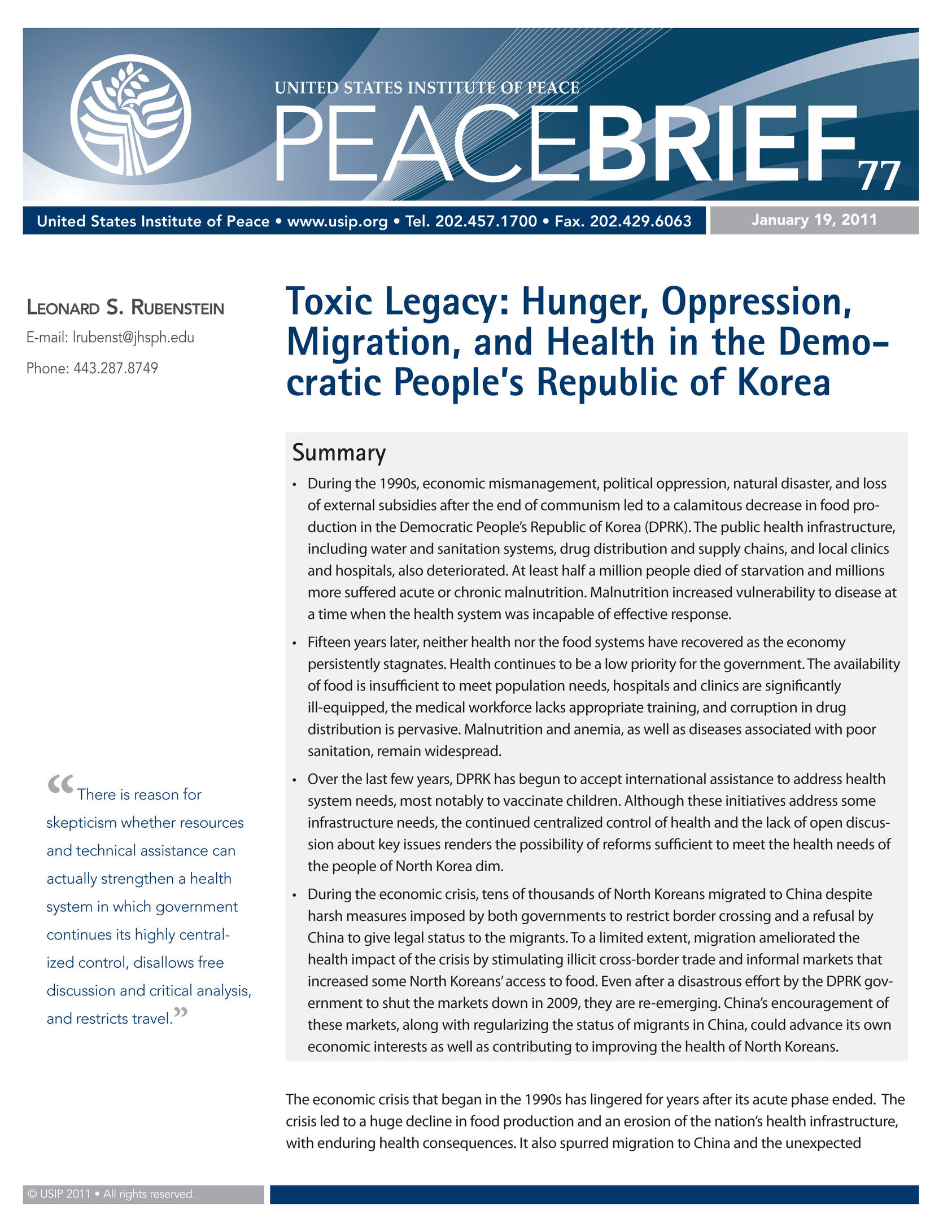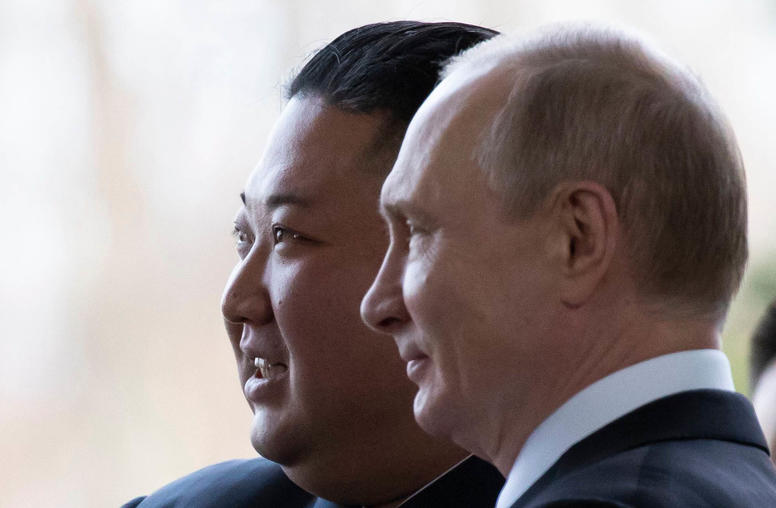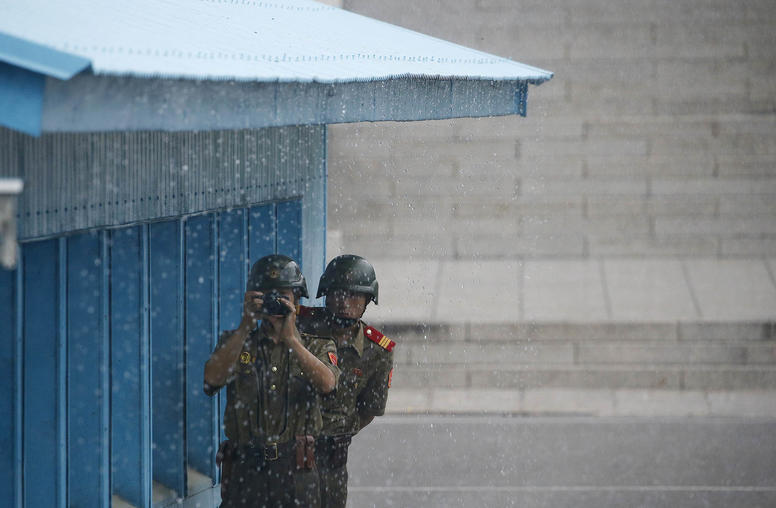Toxic Legacy: Hunger, Oppression, Migration, and Health in the Democratic People’s Republic of Korea
This Peace Brief explores the current health status of North Korea, initiatives to strengthen the health system, the potential impact of migration and informal markets on health, and prospects for the future health of the population.

Summary
- During the 1990s, economic mismanagement, political oppression, natural disaster, and loss of external subsidies after the end of communism led to a calamitous decrease in food production in the Democratic People’s Republic of Korea (DPRK). The public health infrastructure, including water and sanitation systems, drug distribution and supply chains, and local clinics and hospitals, also deteriorated. At least half a million people died of starvation and millions more suffered acute or chronic malnutrition. Malnutrition increased vulnerability to disease at a time when the health system was incapable of effective response.
- Fifteen years later, neither health nor the food systems have recovered as the economy persistently stagnates. Health continues to be a low priority for the government. The availability of food is insufficient to meet population needs, hospitals and clinics are significantly ill-equipped, the medical workforce lacks appropriate training, and corruption in drug distribution is pervasive. Malnutrition and anemia, as well as diseases associated with poor sanitation, remain widespread.
- Over the last few years, DPRK has begun to accept international assistance to address health system needs, most notably to vaccinate children. Although these initiatives address some infrastructure needs, the continued centralized control of health and the lack of open discussion about key issues renders the possibility of reforms sufficient to meet the health needs of the people of North Korea dim.
- During the economic crisis, tens of thousands of North Koreans migrated to China despite harsh measures imposed by both governments to restrict border crossing and a refusal by China to give legal status to the migrants. To a limited extent, migration ameliorated the health impact of the crisis by stimulating illicit cross-border trade and informal markets that increased some North Koreans’ access to food. Even after a disastrous effort by the DPRK government to shut the markets down in 2009, they are re-emerging. China’s encouragement of these markets, along with regularizing the status of migrants in China, could advance its own economic interests as well as contributing to improving the health of North Koreans.
About this Brief
The impact of economic collapse in the Democratic Republic of North Korea during the 1990s continues to devastate the health and lives of people in North Korea. This Peace Brief explores the current health status of North Korea, initiatives to strengthen the health system, the potential impact of migration and informal markets on health, and prospects for the future health of the population.



